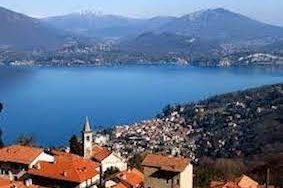Beatification of Antonio Rosmini
Thousands of pilgrims from around the world descended on the northern Italian city of Novara at the weekend, to attend the Beatification Mass for Father Antonio Rosmini Serbati.
The 19th century theologian and founder of the Institute of Charity, some of whose work was once condemned by the Vatican, was beatified on Sunday at a ceremony in the Palazzetto dello Sport in Novara.
(The local newspaper, L'Azione declared: 'Lo Sporting Palace diventa una cattedrale')
More than 8,000 attended the Mass, lead by Cardinal Jose Saraiva Martins with hundreds of bishops and priests and Rosminian Superior, Fr James Flynn.
Among the congregation were groups from Rosminian parishes in England, Ireland, Wales, Kenya, New Zealand, India, and Tanzania. Several former students from Ratcliffe College also attended.
Born in Roverto in 1797, in what was then part of the Austrian empire, Rosmini was ordained to the priesthood in Padua, and gained a reputation as a prolific writer and theologian. He founded the Institute of Charity but his ideas provoked heavy opposition from the Church.
Two of his books: "The Five Wounds of the Church" and "The Constitution According to Social Justice", were placed on the Index of Forbidden Books in 1849.
Six years later, just before Rosmini's death, a Vatican review led to a judgment by Pope Pius IX that his writing was 'free from heterodoxy', however in 1887, the Holy Office formally condemned a set of 40 propositions derived from his written works.
Pope John Paul II praised Rosmini's work, but the official condemnation stood until 2001, when the Congregation for the Doctrine of the Faith, under Cardinal Ratzinger, formally lifted the ban, stating that the controversial elements of Rosmini's works on the partnership of faith and reason were "idealistic and not ontological".
The Congregation also stated that the works of Rosmini had contributed to the teachings of the Magisterium, notably the encyclical Fides et Ratio) by Pope John Paul II, and said that Rosmini foresaw some of the work of the Second Vatican Council.
In 'The Five Wounds of the Church' Rosmini called, among other things, for liturgy in the vernacular, and proposed that laity and priests should be able to elect bishops.
During his homily at the Beatification Mass. the Prefect of the Congregation for the Causes of the Saints, Cardinal Jose Saraiva Martins, said the example of the new Blessed Antonio Rosmini, who he called a "giant of the culture," would help "to recover the friendship between faith and reason, between religion and ethical behaviour at the public service of Christians."
Cardinal Saraiva pointed out that Rosmini, "the philosopher, teacher, political theorist, apostle of the faith, prophet, and giant of the culture," tells the people of today that it is possible to believe and to think of daily life; that faith and reason can be melded together in one's living testimony.
"Father Rosmini lived a theological life in which faith led to hope and charity, with that dialogue of love confident in Providence, which led him to do nothing, either big or small 'sustained by Providence itself'."
"Let us welcome this message, making the God of love and providence the centre, the heart of our lives as Christians in today's society," the Cardinal said.
In speaking about his efforts in the area of culture, Cardinal Saraiva noted that "in response to the call of the popes of his time," he developed a system of thought that was founded upon the faith."
The Cardinal said: "He was misunderstood in his day, but his work received recognition in the encyclical Fides et Ratio by John Paul II.
The Church has recognized in his life's work "the signs of virtues practiced in a heroic way."
Another special Mass and a procession took place on Monday in the lakeside town of Stresa, where Rosmini carried out much of his work, and died, in 1855.
While Rosmini's writings sometimes are very complex, his spirituality is expressed very simply in his last words: 'Adorare' Tacere' 'Godere' - 'Adore' Be Silent' 'Rejoice'.
*During his weekly audience in St Peter's Square, on the day of the Beatification, Pope Benedict XVI praised the life and example of Rosmini. saying: "Blessed Antonio Rosmini was a great priest and an "illustrious man of culture" who generously dedicated his life to harmonizing the relationship between reason and faith.


















